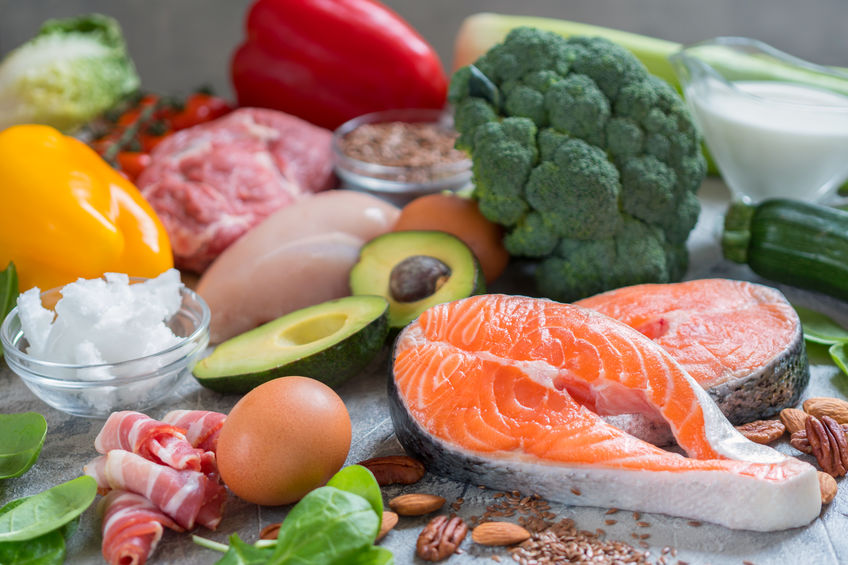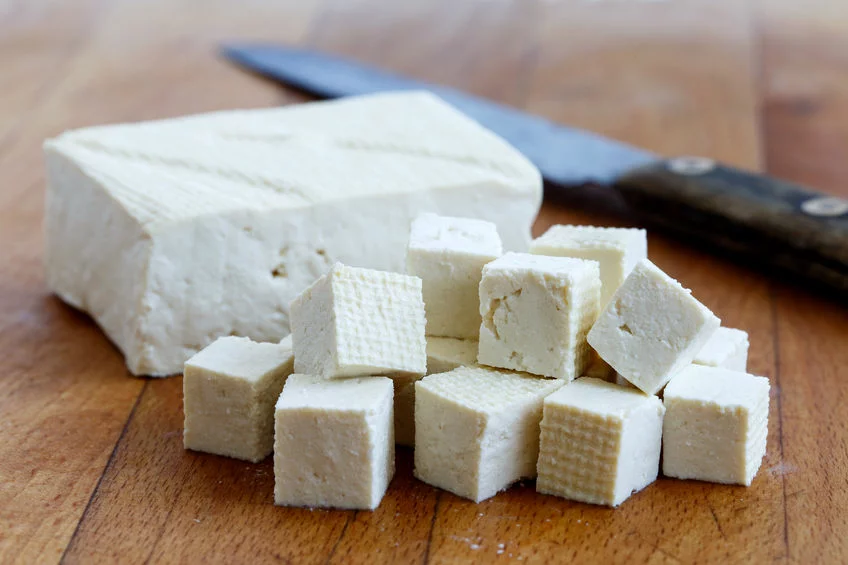If you are fairly new to the keto diet, the list of which foods to eat and which to avoid can seem overwhelming at first. The key to successful weight loss with the keto diet is to always be prepared when it comes to planning your meals for the week. This also makes it easier when the hunger starts to kick in and you are running low on energy. In order to prepare these meals, you need to know what foods are best for maintaining your state of ketosis and fueling your body with the essential nutrients it needs to function properly. While traditional baked goods and potatoes may be a deal breaker for your ketone production, there is a wide variety of wholesome foods to choose from that you can enjoy and benefit from.
We have created a handy keto diet shopping list for beginners to make it easier to get into ketosis and stay there! Take this keto food list with you as a reference. Stock up on these essential staples and get excited about your new healthier lifestyle!
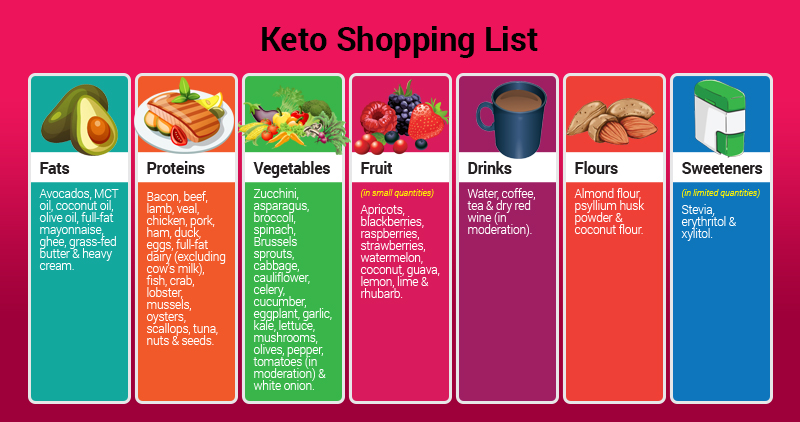
Fresh Produce
The key to adding fresh produce to your keto grocery list is to know which vegetables and fruits are low in starch, carbs, and sugars. While most of us have been brought up knowing that all fruits and vegetables are healthy and good for us, it becomes tricky when you are following a low carb lifestyle such as the keto diet. Most fresh produce are low in calories and fat, however, they all contain various quantities of sugars and carbohydrates.
These are some of the fresh produce items you should add to your keto diet grocery listt:
Zucchini
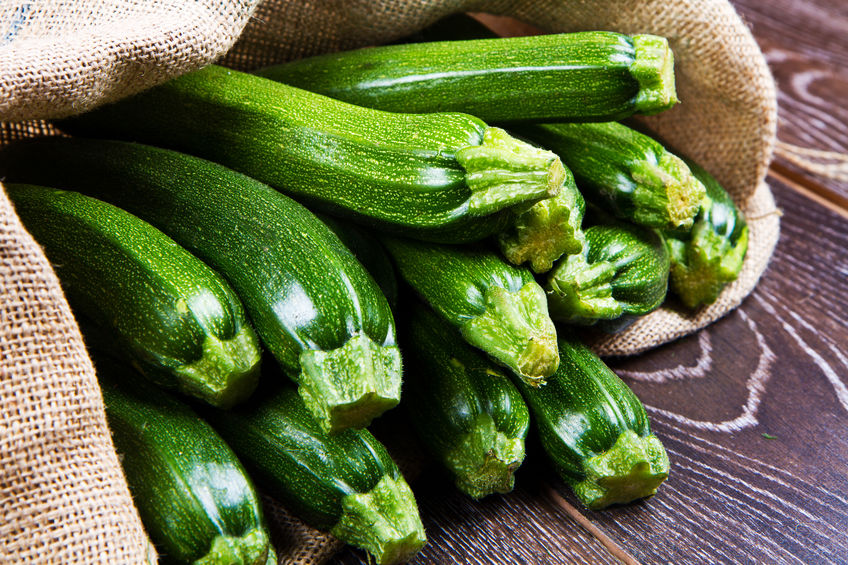
Zucchini, or otherwise known as courgette, is a nutrient-dense vegetable that has endless health benefits. Zucchini is low in fat, high in water and fiber and also contains essential vitamins such as riboflavin, potassium, manganese as well as vitamins B6, C, and K. They also offer a powerhouse of antioxidants and anti-inflammatory phytonutrients which help with digestion, eye health, lowering blood sugar levels, weight loss and improves thyroid and adrenal functions.
Cauliflower
It’s no secret that cauliflower dominates the list of keto vegetables because it is so versatile and the taste is so subtle it could pass for rice, potatoes or even a crispy pizza base. When it comes to nutritional profile, cauliflower never fails to impress. It is low in carbohydrates and calories but contains almost every mineral and vitamin your body needs to function. It is loaded with powerful antioxidants which help to fight off oxidative damage, as well as choline, an essential nutrient that plays a vital role in synthesizing DNA and protecting cell membranes.
Mushrooms
Mushrooms are a great addition to any meal on the keto diet, not only because they are low carb but also because they are very beneficial for your health. Shiitake mushrooms, in particular, can be used as an alternative to meat because of its rich flavor and chewy texture. 100 grams of these buttoned vegetables only contains 4.5g of net carbs. Shiitake mushrooms contain Eritadenine, Sterols, and Beta-glucans, three compounds that help to lower cholesterol and blood pressure levels. In addition to these compounds, Shiitake mushrooms are the only natural plant source of vitamin D which helps to strengthen your bones and fight infections.
Watermelon
Many can agree that this summer fruit is one of the best ways to cool down during a heat wave. Watermelon contains the lowest carbohydrate content in comparison to any other fruit at just 7.55g net carbs per 100g serving. The high water content helps to fight dehydration and fill you up quickly during meals. Watermelon is also a fantastic source of vitamin A and Cucurbitacin E, a compound found in plants that has beneficial anti-inflammatory and antioxidant effects.
Raspberries
For most people following the keto diet, raspberries are a great source of nutrients and can be incorporated in many sweet or savory meals. While raspberries may be low in carbs at just 3.5g net carbs per half a cup, moderation is key. These juicy berries are packed with beneficial antioxidants and are rich in polyphenol, an essential organic chemical that helps to lower your blood pressure and prevent the buildup of plaque in the arteries.
Oils And Fats
On a strict keto diet, 70 to 80% of your daily calorie intake should be comprised of fat. It’s all about moderation and knowing how much fat to consume to ensure you don’t overdo it. Not all fats are created equal which is why it is important to know which oils and fats you should be adding to your keto diet shopping list. Most of your fats and oils should come from natural nutrient-rich sources which are high in saturated, monounsaturated and polyunsaturated fatty acids.
These are some of the fats and oils you should add to your keto shopping basket:
MCT Oil
Medium-chain triglyceride or MCT oil is a kitchen essential for the keto diet. Unlike long-chain fatty acids such as avocados, nuts, and fish, MCTs are much easier to digest, making it an instant source of energy for the body to use. MCT oil is a great way to kick the lethargy and brain fog, common side effects of the keto flu. In addition to this, MCT oil is a great way to rev up your ketone production, increase satiety and enhance weight loss.
Coconut Oil
Much like MCT oil, coconut oil is high in medium-chain triglycerides, however, the difference is that MCT oil is a more concentrated form of medium-chain triglycerides that is derived from coconut or palm oil. Unrefined coconut oil also contains lauric acid, a potent saturated fatty acid that offers antimicrobial, antioxidant, and antiviral properties which help to fight off pathogens and other bacteria in the body. Coconut oil is also more suitable for high-temperature cooking.
Ghee
Ghee is a great alternative to butter because it is about 15% higher in fat and contains a higher butyrate content. Butyrate is a short chain fatty acid that is beneficial for speeding up your metabolism and helps to improve your ketone production levels. Ghee is also high in conjugated linoleic acid or CLA, a naturally occurring fatty acid which promotes weight loss and assists the body by retaining lean muscle mass. Ghee also has a higher smoke point than butter, making it a better choice for high-temperature cooking.
Flours
By now you will know that grains and refined wheat flour are a no-go zone for anyone following the keto diet. While cookies, bread, and cakes are banned from the keto rule book, there are substitute flours you can use to make these heavenly treats without kicking your body straight out of ketosis. The trick is to find a low carb flour with a good consistency that won’t dry out your keto cakes and desserts.
These are some of the flour substitutes you should add to your keto diet shopping basket:
Almond Flour
Almond flour is not only low in carbs but it contains various nutrients and has a much sweeter taste which is great for sweet tooth cravings. This flour substitute is gluten-free and contains a significant amount of vitamin E, a fat-soluble compound that is beneficial for fighting free radicals that cause premature aging and a higher risk of heart disease. Almond flour is also abundant in magnesium, an essential nutrient which helps reduce insulin resistance and stabilizes blood sugar and pressure levels. The traditional wheat flour in many recipes can be substituted with almond flour at a 1:1 ratio.
Psyllium Husk Powder
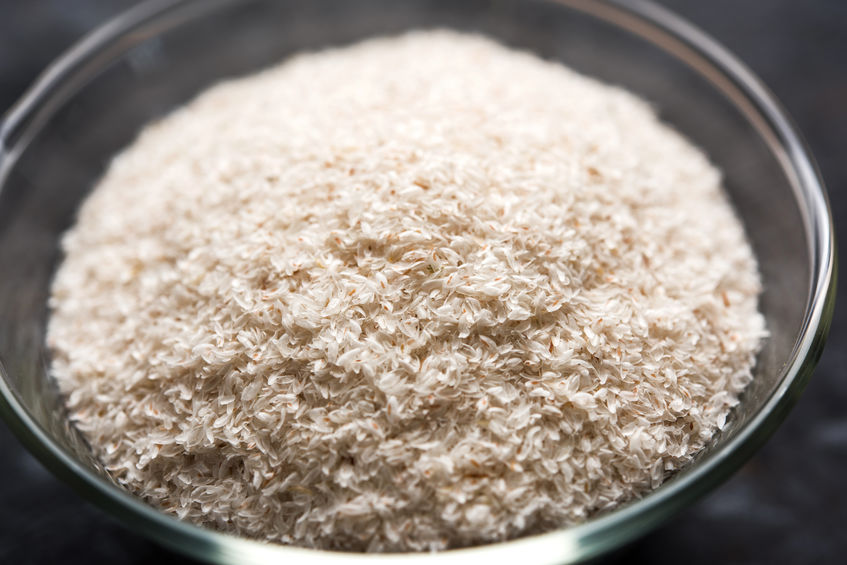
Psyllium husk powder is a must-have ingredient on any keto diet shopping list if you love baked goods. This powder is a wonderful substitute for traditional wheat flour because it has virtually no carbs and is completely free of gluten. Psyllium husk powder is used in a variety of health supplements because of its high soluble fiber content and digestive benefits. It is also a great way to stabilize blood sugar and blood pressure levels if you are experiencing any keto flu symptoms. Psyllium husk powder is perfect for mimicking the texture of bread, pizza bases and rolls.
Coconut Flour
Coconuts never cease to amaze us when it comes to their versatility and nutritional profile. The same can be said for coconuts that have been dried and ground. This gluten-free alternative is one of the most popular wheat flour substitutes because of it’s high MCT content and low carb count. Coconut flour ranks fairly low on the glycemic index meaning that it does not cause a spike in your blood sugar levels which is an important factor in ketone production. When it comes to baking a fat burning muffin, coconut flour is the way to go.
Do you want to find an effective Keto treatment? Check out our top rated Keto products


